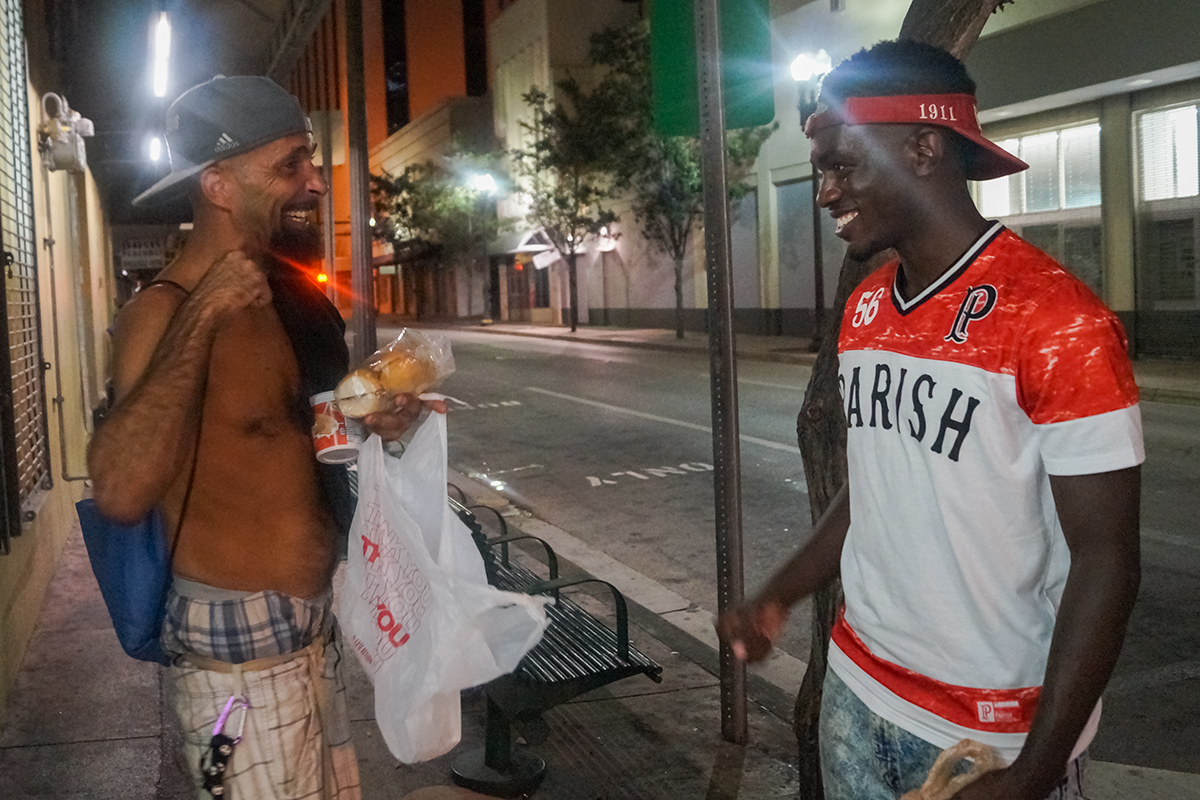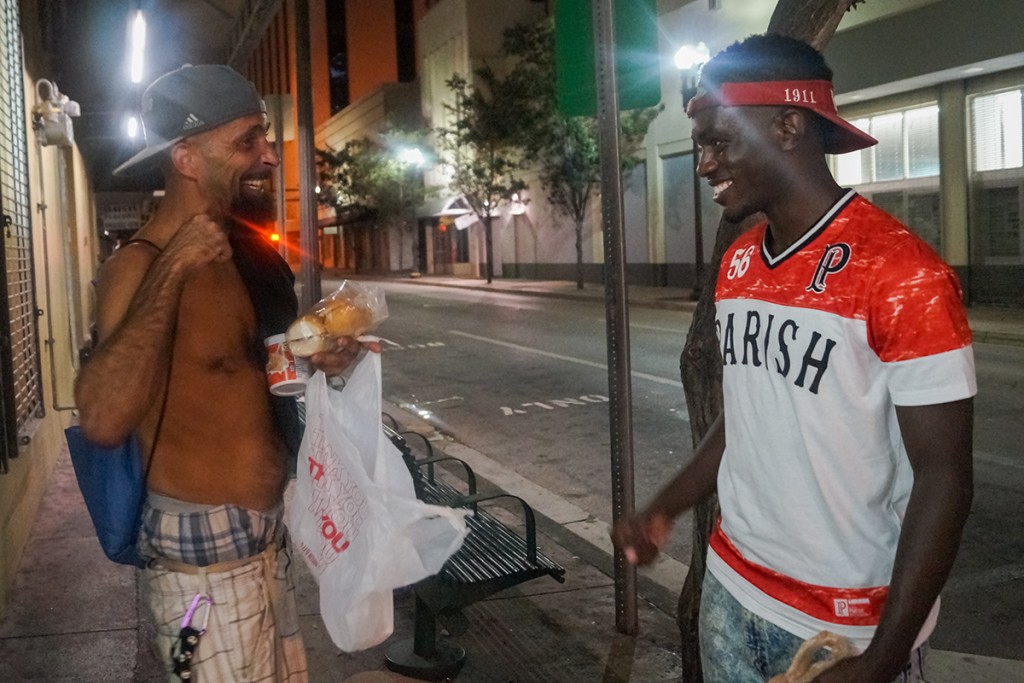

The dining system at the University of Miami offers weekly meal plans, but meals don’t roll over from week to week, so meals often go unused.
“I came up with this idea last year when I had an unlimited meal plan,” he said. “I would use 20 or so swipes and I would still have, like, seven left over. I didn’t have any money to give [them], but I had takeout.”
The takeout option allows students to choose certain items from a set of prepared food options and bring them outside of the dining halls; otherwise, meals must be eaten inside the dining halls.
There are more than 4,000 homeless people in the Miami-Dade area, according to the Miami-Dade County Homeless Trust. Some go days without eating and are on the brink of starvation.
As a kid, Abdul-Jalaal and his family made goodie bags for the homeless on Thanksgiving with essentials like toothbrushes and toothpaste. When he got older, he experienced homelessness in a completely different way through the lives of his friends.
“I’ve had friends who’ve definitely had tough times,” he said. “When it’s somebody you see on a daily basis that you know, it definitely opens your eyes.”
On Sunday, he distributed about 30 meals after driving around for an hour.
The first to receive a meal was Albert, 45, who said he was sent to prison at 23 for drug charges and was released 22 years later. While in prison, both his parents passed away, leaving him without a home upon release. He also has a daughter who he is unable to see.
Madison Jackson, a junior, was excited to help the cause. She said she likes to help homeless people when she can but chooses to not give money.
“A lot of times, I just don’t have cash on me and a lot of times, as bad as it seems, I don’t know what they’re using the money for,” Jackson said. “I prefer to give exactly what they’re asking for.”
Jackson went to takeout specifically looking for hearty items and food that wouldn’t expire quickly. She chose cookies, jalapeno chips, a ham pastrami and cheese sandwich, a chocolate chip granola bar, and milk.
Abdul-Jalaal makes sure each bag has an eating utensil, a drink and a food item before giving it out. He does not want his service to become so big that the idea gets lost, but he is happy to partner with any organization willing to give food and provide more cars to reach more areas.
“Just be aware that it’s there,” he said. “You can do little things here and there. Every time that you can make a difference, make a difference.”
Before eating, Albert asked Abdul-Jalaal to bless the food. According to him, Abdul-Jalaal was God’s disciple. Albert hopes that a church in South Miami can help him find a job to make a living, but he fears that he will have to go back to doing what put him in jail if no other opportunities are presented.
“I might have to go back to doing what I know how to do,” Albert said.
Despite hearing stories like Albert’s, Abdul-Jalaal said he still does everything in his power to help the homeless population, whether it be by giving food or the change in his pocket.
“I don’t really think of the worst that can happen,” Abdul-Jalaal said. “You can’t really assume what a person has done or is going to do, you just have to have good faith.”
To help with the initiative Abdul-Jalaal calls “Just because it’s Sunday,” email him at b.abduljalaal@umiami.edu or contact him on Instagram @above_thehype_.






